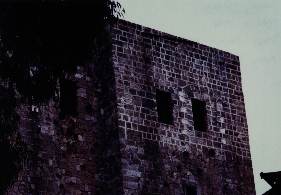.
.
.
The
Declaration of Baha'u'llah, made under such unusual circumstances, was
a turning point in the history of the new Cause. Now, at last, the promise
of the Bab
had been fulfilled, the Day of the Unity of
Mankind had been ushered in, and no power
on earth could stop its progress.
.
Baha'u'llah
exile in Constantinople lasted no longer than four months, during which
time a number of the notables of the city came under the influence of His
teachings. Then He was
sent
still further away to Adrianople.
Here He stayed for almost five years, and from here He proclaimed
His Mission to the kings
and rulers of the earth ,
as well as to the ecclesiastical leaders
of all religions. He called upon them to listen
to the Message of God, to come together to resolve their differences, and
to work for the promotion of world peace. When they failed to respond
to His summons, He warned them of the consequences of their acts.
He foretold the downfall of their institutions and lamented the terrible
suffering which humanity, forgetful of
its
God and oppressed by leaders drunk with pride, would inflict upon itself.
Through this suffering, however, He could see mankind emerging, humbled
and spiritually
awakened,
ready to turn to the Message of God.
.
The
Revelation of Baha'u'llah, which had been born in the dungeon of Tehran
and
declared
on the eve of His departure from Baghdad
, reached its zenith in Adrianople.
The
force of this revelation could no longer be ignored by either the statesmen
of the land
or
the clergy who were its ruthless enemies. In a desperate attempt
to crush the infant
Faith,
whose followers were being drawn from every religion and all strata of
society,
Baha'u'llah
was banished once again, this time to the remote penal colony of
the
Turkish
Empire, the perison-city of Acre
in the Holy Land.
.
He
was sent there to die, for it was unknown that few could survive the rigours
of imprisonment in that foul and hostile place.
,,
.
 Baha'u'llah's prison
in Acre
Baha'u'llah's prison
in Acre
 ...
...


 -
4 -
-
4 -

